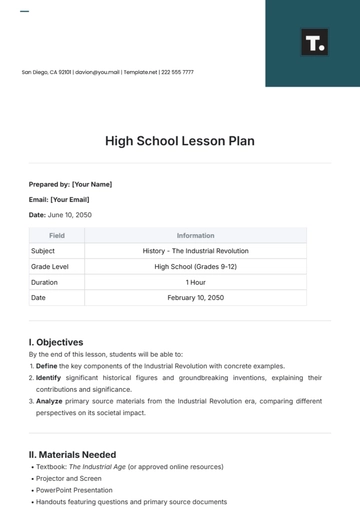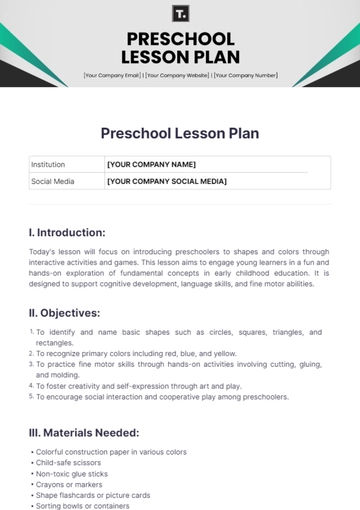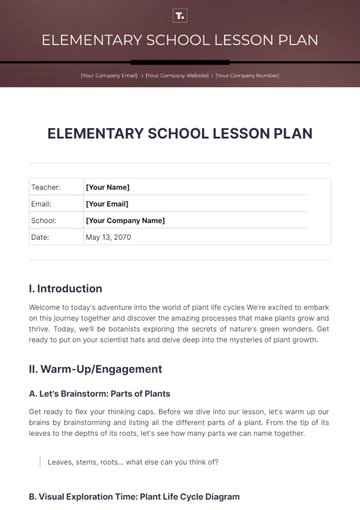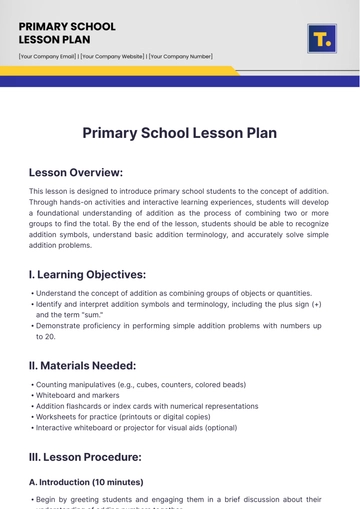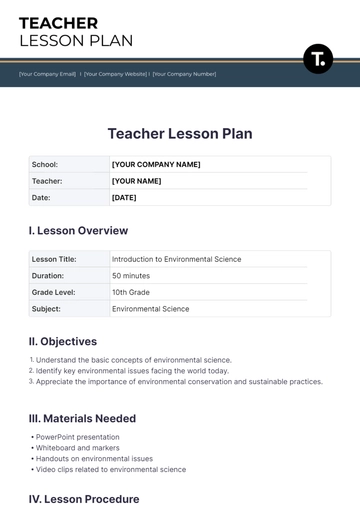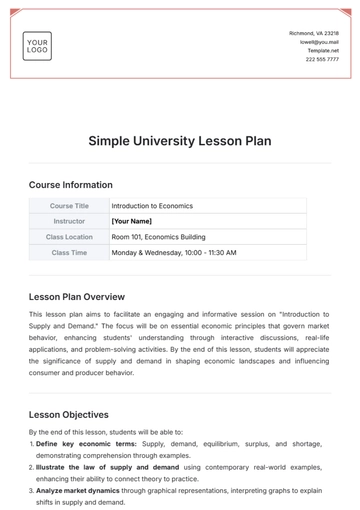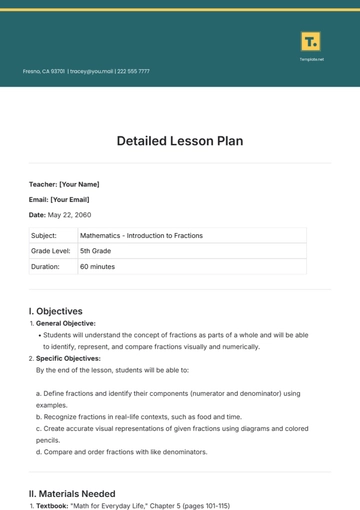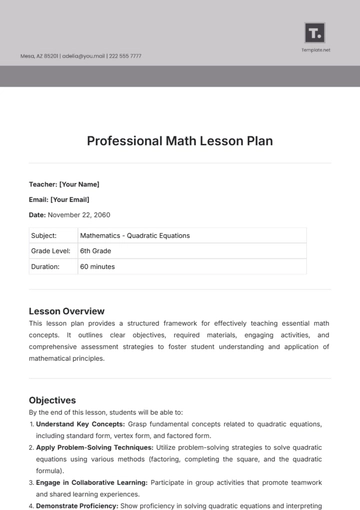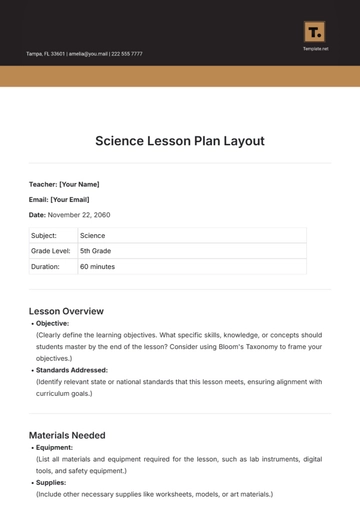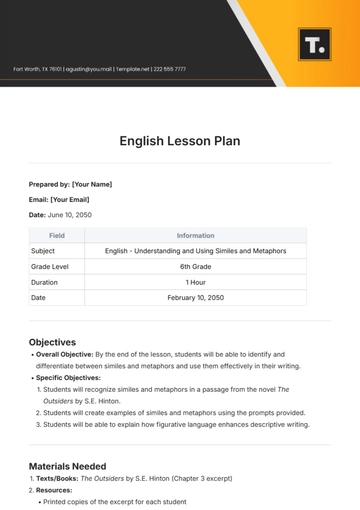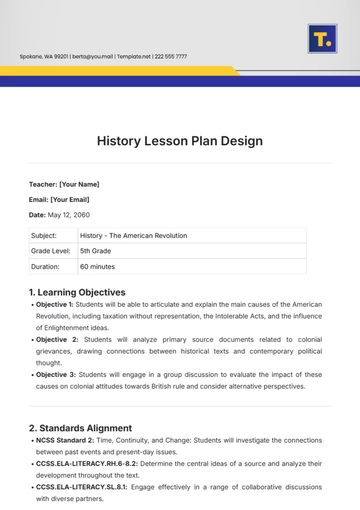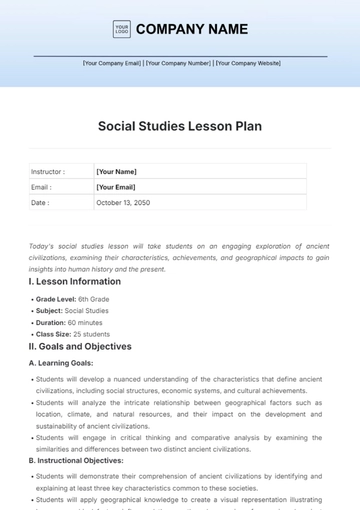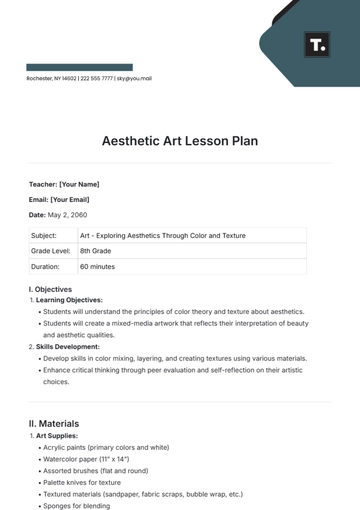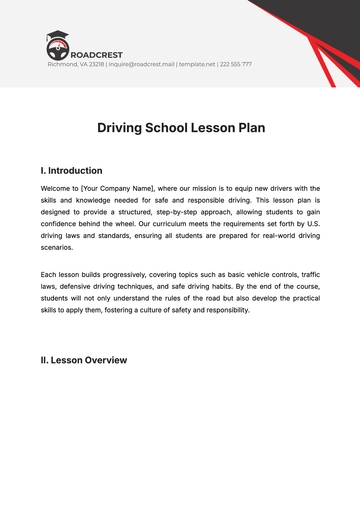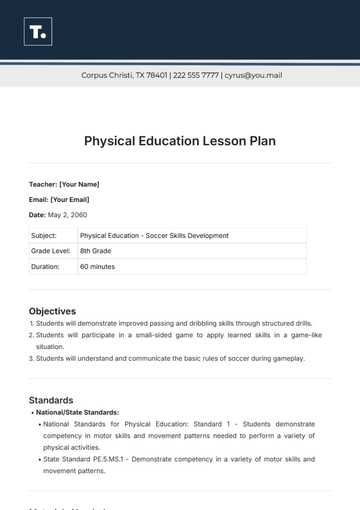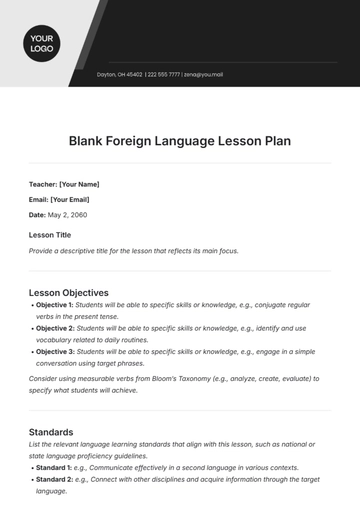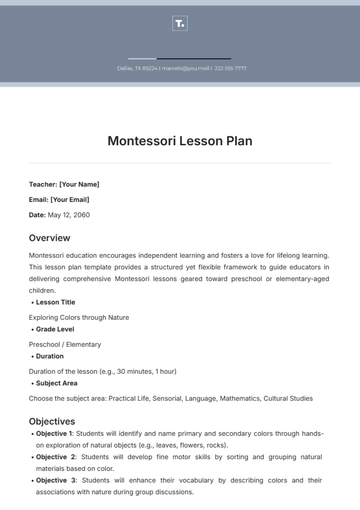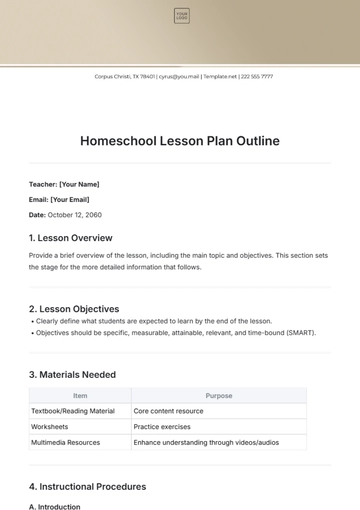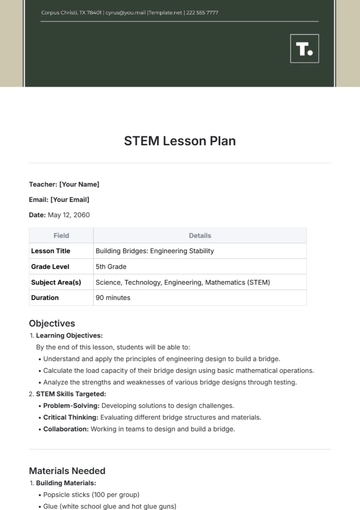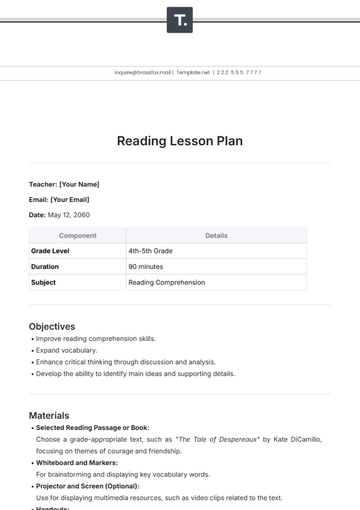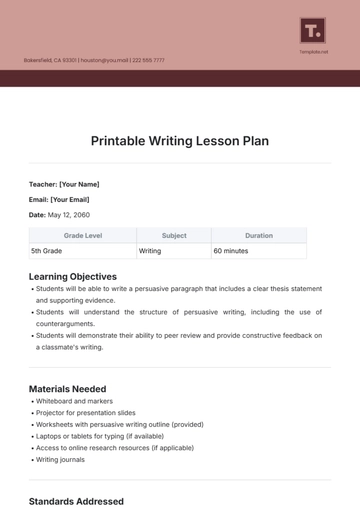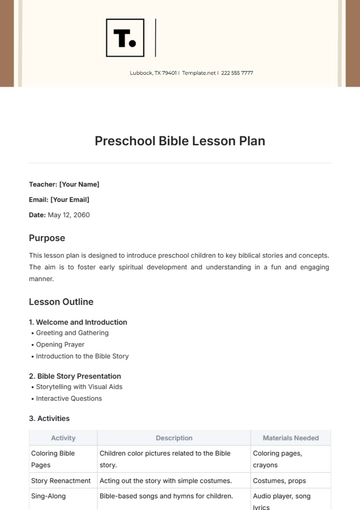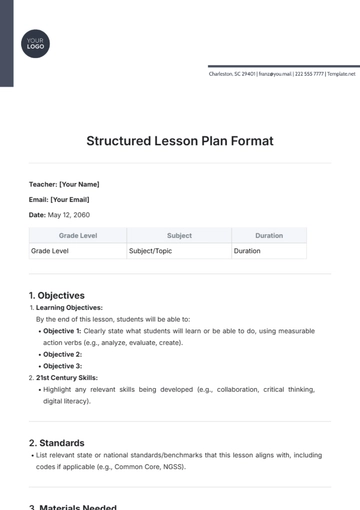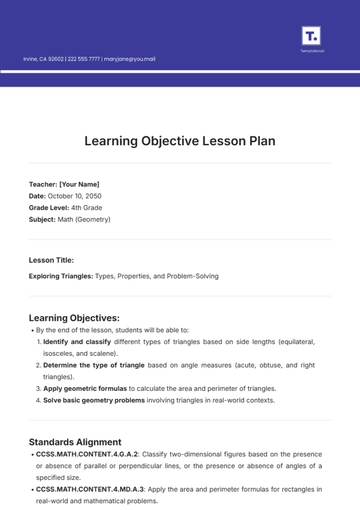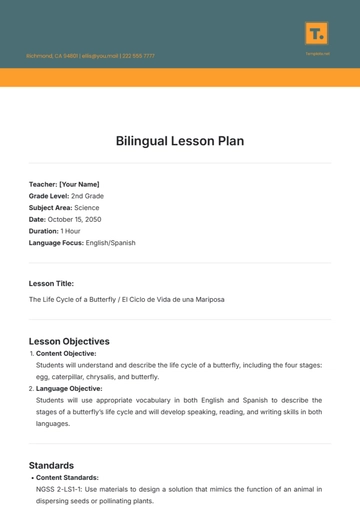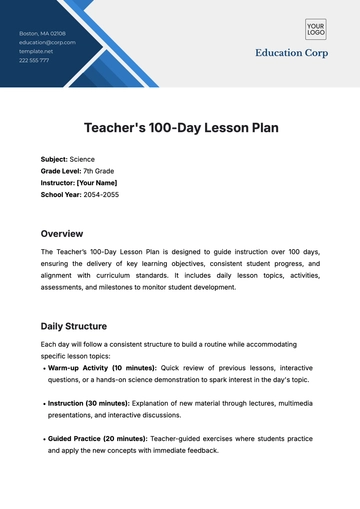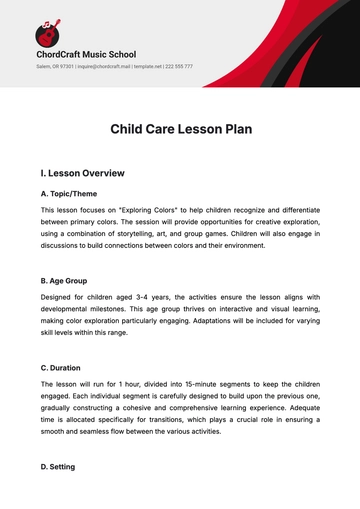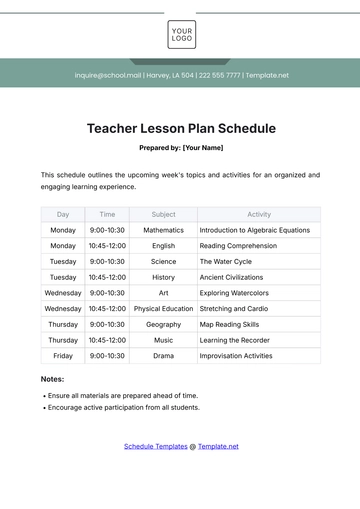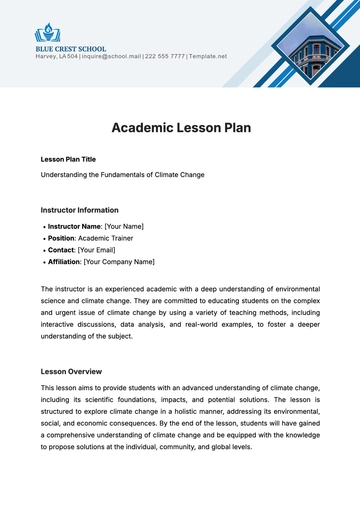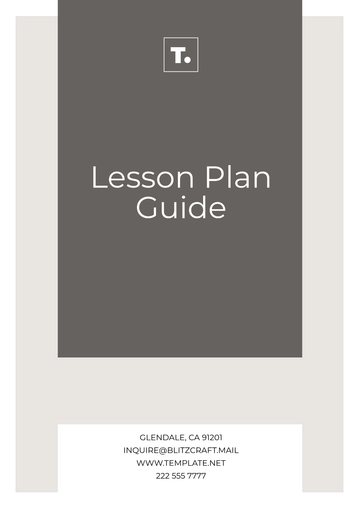Free Structured Lesson Plan Format
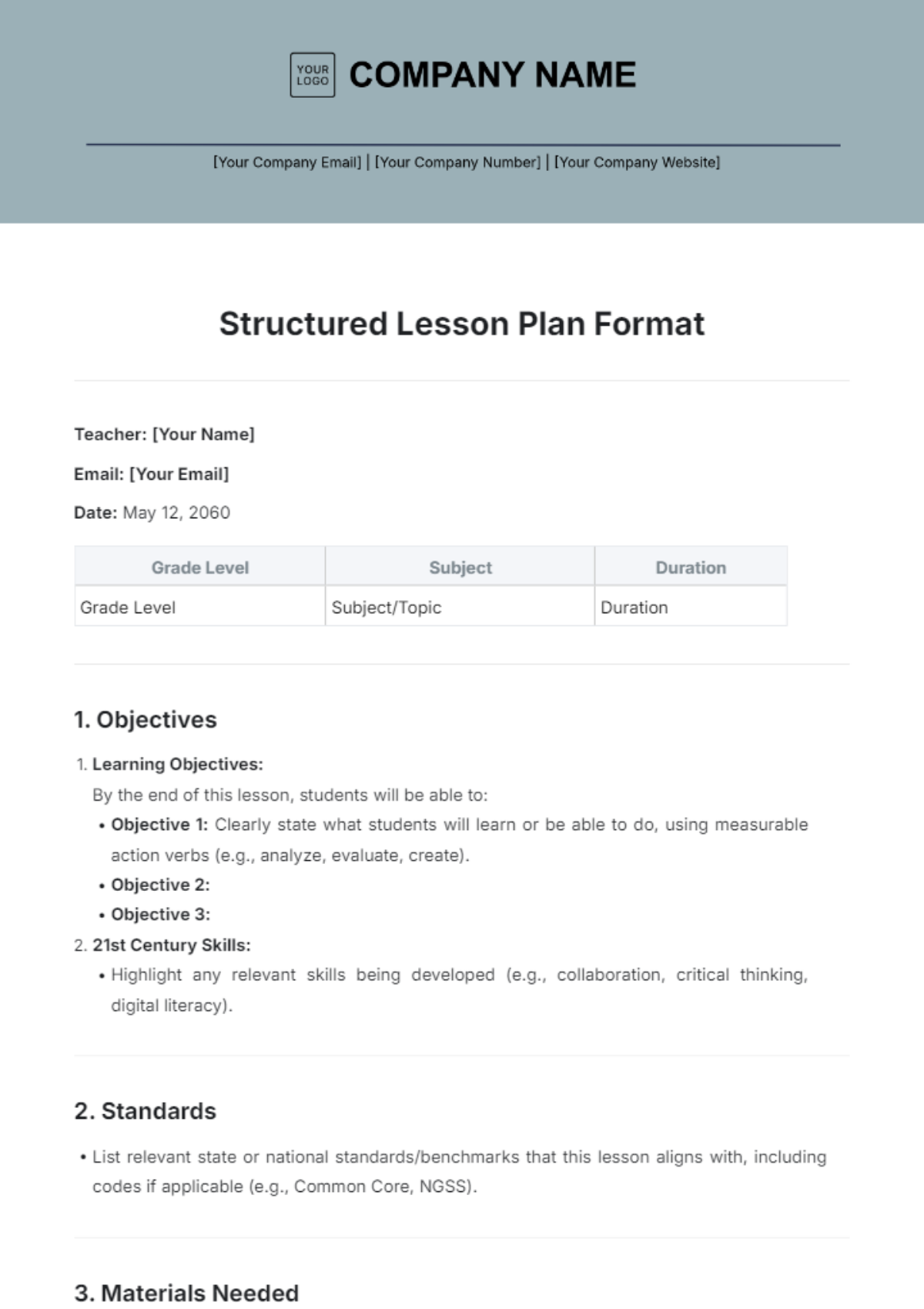
Teacher: [Your Name]
Email: [Your Email]
Date: May 12, 2060
Grade Level | Subject | Duration |
|---|---|---|
Grade Level | Subject/Topic | Duration |
1. Objectives
Learning Objectives:
By the end of this lesson, students will be able to:Objective 1: Clearly state what students will learn or be able to do, using measurable action verbs (e.g., analyze, evaluate, create).
Objective 2:
Objective 3:
21st Century Skills:
Highlight any relevant skills being developed (e.g., collaboration, critical thinking, digital literacy).
2. Standards
List relevant state or national standards/benchmarks that this lesson aligns with, including codes if applicable (e.g., Common Core, NGSS).
3. Materials Needed
Instructional Materials:
Textbooks, digital resources, handouts, articles, or any other printed materials needed for the lesson.
Technology/Equipment:
Computers, tablets, projectors, smartboards, or other technological tools that will be used.
Supplies:
Markers, paper, art supplies, manipulatives, or other necessary materials.
4. Introduction (5-10 minutes)
Hook:
Engaging activity, question, or video clip that captures students’ interest and activates prior knowledge. This could include a thought-provoking question or a short interactive game.Overview:
Briefly explain the lesson topic, objectives, and the relevance of the content to real-life situations to engage student’s interest and understanding.Expectations:
Outline classroom expectations for participation, respect, and behavior during the lesson. This could involve discussing the importance of listening, asking questions, and collaborating with peers.
5. Instructional Procedures
Direct Instruction (15-20 minutes):
Provide detailed steps on how you will present the content, including visuals (slides, diagrams) and key concepts.
Key Points to Cover:List the main ideas to be discussed, ensuring clarity and focus.
Guided Practice (15-20 minutes):
Include structured activities where students apply learning with teacher support, such as small group discussions, partner work, or hands-on activities.Example Activity: Describe the activity clearly, including instructions, grouping, and expected outcomes.
Independent Practice (20-30 minutes):
Outline tasks students will complete independently to reinforce learning, such as worksheets, projects, or digital assignments. Provide options or choices to cater to different learning styles and interests.
6. Assessment/Evaluation
Formative Assessment:
Describe methods for monitoring understanding during the lesson, such as questioning, observation, quick quizzes, or thumbs-up/thumbs-down responses.Summative Assessment:
Detail the assessment that will evaluate student learning at the end of the lesson (e.g., quiz, project), including grading rubrics or criteria for success.
7. Differentiation
Strategies for Diverse Learners:
Outline specific approaches for students with different needs, including those with IEPs or English Language Learners (ELLs). Include modifications or accommodations to support their learning.Example: Provide visual aids or simplified texts for ELLs.
Enrichment Activities:
Suggest additional activities or challenges for advanced learners to deepen their understanding.Grouping Strategies:
Explain how students will be grouped for activities (e.g., heterogeneous groups to promote peer learning).
8. Closure (5-10 minutes)
Recap of Key Points:
Summarize the main points covered in the lesson to reinforce learning outcomes. Encourage students to share their thoughts on what they learned.Exit Ticket/Reflection:
Ask students to reflect on what they learned or respond to a specific prompt on an index card or digital platform before leaving. This can help gauge understanding and prepare for the next lesson
9. Follow-Up Activities
Provide suggestions for extension activities, homework assignments, or related lessons that build on the day's learning. Include any relevant resources or materials needed for these activities.
Teacher Reflection
What went well?
Reflect on successful aspects of the lesson and student engagement.What could be improved?
Identify areas for enhancement or challenges faced during the lesson.Notes for Future Lessons:
Include any adjustments, ideas for similar lessons, or insights gained that can inform future planning.
- 100% Customizable, free editor
- Access 1 Million+ Templates, photo’s & graphics
- Download or share as a template
- Click and replace photos, graphics, text, backgrounds
- Resize, crop, AI write & more
- Access advanced editor
Achieve effective lesson planning with our Structured Lesson Plan Format Template available at Template.net! This editable and customizable template provides a clear framework for creating organized and impactful lessons. Utilize our Ai Editor Tool to make real-time modifications, ensuring your lesson plans are always aligned with educational standards and your teaching goals.
